Dear Friend,
As we wrap up the first quarter of 2025, we are excited to share some of the key milestones from our work in driving youth engagement in Nigeria. The quarter was filled with impactful programs, capacity building, advocacy efforts, and strategic partnerships that continue to push the boundaries of youth-led climate action, policy advocacy, and sustainable development. A major highlight for us in the first quarter was the close-out event for the “Empowering Youth Civil Societies to Build Stronger Communities in Nigeria” project, which saw us launch two resource materials: The Climate Innovation Challenge Case study and the Local Adaptation Plan of Action for 4 states in Nigeria. Did you miss any of our Newsletters? Below is a recap; see it as a refresher course from us to you.
Meet the Young Nigerians Turning Climate Challenges into Sustainable Solutions
What happens when innovation meets purpose? You get changemakers like Fatima, Samson, Joy, and Sayedi: four bold Nigerian youth turning today’s climate challenges into tomorrow’s sustainable solutions.
At just 26, Fatima Kabir, founder of Greenium Eco, is transforming agricultural and metal waste into clean-burning briquettes and fuel-efficient stoves, slashing indoor air pollution and reducing deforestation in rural communities. Meanwhile, Samson Umahonlen of Growth Agric Ventures is reimagining agriculture. By converting waste into organic fertilisers and biochar, he's enriching soil health while reducing harmful emissions. Talk about farming the future!
Joy Uchenabo, leading GreenShift Tech, is fighting household air pollution with clean cooking alternatives, while Sayedi Umar Moh’d of GreenLite Solutions is breathing new life into plastic waste, turning it into reusable school and shopping bags, pushing Nigeria closer to a circular economy. These trailblazers are part of the Sustainable Innovation Lab (SIL), launched under the “Empowering Youth Civil Societies to Build Stronger Communities in Nigeria” project, powered by a ₦5 million seed grant from the German Embassy. Their journeys were spotlighted in a compelling climate innovation case study unveiled at the project’s close-out event in Abuja.
Want a dose of youth-driven climate hope? Check out the case study in the resource section below.
Mentors of Change: Meet the Judges Behind the Sustainable Innovation Lab
At the heart of the Sustainable Innovation Lab (SIL) lies a team of exceptional judges who didn’t just assess ideas but helped shape a movement. Selected for their unmatched expertise in innovation, sustainability, and environmental policy, the SIL judges played a pivotal role in guiding Nigeria’s next generation of climate champions.
From fostering thought leadership to evaluating ideas against Nigeria’s National Adaptation Plan and NDCs, they brought clarity, strategy, and mentorship to the table. Their insight helped transform SIL into more than a competition as it became a launchpad for young visionaries committed to driving climate solutions and building resilient communities. These judges helped mold a new generation of climate leaders, and their guidance will continue to ripple across communities, policies, and innovations for years to come.
Local Solutions, Lasting Impact: Youth-Led Action Plans for Climate Resilience
Across four Nigerian states: Kaduna, Nasarawa, Ondo, and Enugu, young civil society teams are taking climate resilience into their own hands. With support from the German Embassy, NGYouthSDGs facilitated the creation of Local Adaptation Plans of Action (LAPAs) that offer tailored, community-driven responses to environmental challenges. Each LAPA was shaped through intensive community engagement, where voices from the grassroots merged with technical expertise to map out climate threats like erratic rainfall, flooding, and rising temperatures. What emerged were practical, community-specific solutions: from weekly community-led waste checks in Kaduna to flood mitigation systems in Nasarawa, to sustainable agriculture strategies in Enugu and water-smart infrastructure plans in Ondo.
Together, these LAPAs not only reflect local realities but also align with Nigeria’s Nationally Determined Contributions (NDCs) and National Adaptation Plans (NAPs). By centering youth in the process, we’re proving that sustainable development doesn’t just trickle down, it rises from the ground up.
Advancing Local Adaptation Plan of Action in Enugu State
Climate change affects everyone, from government officials and business leaders to market traders, young farmers, students, and children. Last month, our Youth Civil Society Organizations (CSOs) in Enugu, Plogging Nigeria and Eco Cyclers achieved a major milestone in climate resilience by formally presenting the Local Adaptation Plan of Action (LAPA) to key stakeholders as part of the “Empowering Youth Civil Societies to Build Stronger Communities in Nigeria” project.
In a strategic partnership with SustyVibes, the team met with Professor Sam Ugwu, Commissioner for Environment, Enugu State, to discuss integrating LAPA into the state's broader climate action agenda. The recent launch of Enugu’s Climate Policy and Action Plan provided the perfect backdrop for this engagement, reinforcing the need for coherence between local adaptation strategies and state-wide environmental policies. The journey toward a climate-resilient Enugu State continues. We remain committed to working with all stakeholders, the government, the private sector, and local communities, to turn plans into action and build a sustainable future for all. The LAPA document is vital in advancing sustainable development and ensuring that grassroots communities can effectively respond to climate threats.
Voluntary National Review (VNR) 2025: It’s Time to Speak Up!
With a strong pact to leave no one behind, we joined other well-meaning Nigerians ably represented by one of our YAL Associates, Solomon John, at the UN House for the third national consultation on Nigeria's Voluntary National Review (VNR) 2025. The gathering, themed "Advancing Sustainable, Inclusive, Science, and Evidence-Based Solutions for the 2030 Agenda and its Sustainable Development Goals: Leaving No One Behind," highlighted the significance of incorporating the perspectives of children and youth in discussions regarding the Sustainable Development Goals (SDGs).
At the gathering, participants underscored the need for the government to enhance youth participation in decision-making at all levels and increase investment in quality education and healthcare. UNICEF Nigeria and key stakeholders pledged to continue supporting initiatives led by children and youth aimed at promoting sustainable development.
As Nigeria prepares for its presentation at the VNR 2025, this third national consultation represented a pivotal moment for youth engagement in the realm of sustainable development. The event reinforced our collective commitment to achieving the SDGs by amplifying the voices of children and youth.
Advancing Youth Development: Key Outcomes from the UN Interagency Youth Retreat
Represented by our communications manager, Oloruntobi Adejare, we had the privilege of joining some of the UN agencies, youth leaders, government reps, and civil society partners for the United Nations Interagency Group on Youth (UNIAYG) Retreat. It wasn’t just another meeting. It was a moment of reflection, honest dialogue, and renewed commitment to the future of Nigeria’s young people. Key highlights included a review of the National Youth Policy, consultations with youth for the Summit of the Future, and collaborative work on the Nigerian Adolescent and Youth Index.
In 2025, UNIAYG will focus on improving youth employment through the National Youth Employment Action Plan, scaling civic engagement, and reactivating its internship and volunteer programs. The Federal Ministry of Youth also unveiled plans to launch the Nigeria Youth Academy, support grassroots youth engagement, and intensify efforts on climate action, mental well-being, and policy coordination. As the development space evolves, UNIAYG, alongside government ministries, CSOs, and partners like GIZ, remains committed to inclusive, youth-led solutions that ensure no young person is left behind.
Empowering Youth to Champion Labour Rights and End Child Labour
At NGYouthSDGs, we’re committed to nurturing youth voices to influence policy and shape a just future. That’s why we were honoured to co-facilitate the recent Capacity Building Workshop on Strengthening Youth Advocacy for Fundamental Principles and Rights at Work (FPRW) and Elimination of Child Labour and Forced Labour organised by the International Labour Organisation (ILO) and the Ministry of Foreign Affairs of the Netherlands.
Our Programs Manager, Opeyemi Ogundeji, led two dynamic sessions, unpacking the how-to of youth-led campaigns and the vital tools to advocate against child labour. The sessions spotlighted the power of collaboration and digital tools to ignite sustainable change, whether in schools, communities, or digital spaces. The workshop was a timely reminder that upholding labour rights is non-negotiable, and youth voices must be amplified in ending forced and child labour. Together, we’re building a future where work is fair, children are protected, and youth leadership drives progress.
Co-Creating Nigeria’s Climate Future: One Conversation at a Time
In a major step towards solving climate finance issues in Nigeria, the National Council on Climate Change Secretariat (NCCCS) brought together climate thinkers, policy experts, and stakeholders for a two-day hybrid engagement that wasn’t just about policy, but building Nigeria’s climate resilience from the ground up. The event explored the future of the Climate Change Fund (CCF), brainstorming everything from governance frameworks to climate finance models that reflect our national realities. What stood out wasn’t just the wealth of expertise in the room; it was the shared determination to make the CCF inclusive, accountable, and impactful. From lessons learned globally to insights from PWC, and hands-on group work, ideas centered on Nigerian communities were crafted and tailored to community environmental needs. We talked about innovative climate taxonomies, fund structures like green bonds and carbon markets, and how to prioritise bankable yet socially impactful projects that might not yield profits but will protect lives and livelihoods.
By the end of the 2-day event, the message was clear: climate action in Nigeria needs more than talk. It needs a fund backed by political will, local ownership, and clear criteria for impact, especially as we push toward our NDC commitments. And while challenges like reduced banking engagement were flagged, so too was a path forward rooted in transparency, innovation, and a call for the federal government to seed the fund with a percentage of its revenue because the future of our climate response depends on it.
International Women's Month 2025: Accelerate Action
For us at NGYouthSDGs, March was a special month to recognise and celebrate the incredible women leading the charge in climate action, sustainability, and environmental innovation for a brighter, more sustainable future for all of us. Women from diverse backgrounds, communities, and sectors are undertaking fantastic work that ranges from pioneering cutting-edge technologies to advocating for environmental justice. They inspire grassroots movements to protect our planet and ensure a healthy environment for future generations. Whether they are pushing for crucial climate policies, developing eco-friendly alternatives, or empowering their communities with sustainable practices, their contributions are making a tangible impact on how we address the pressing challenges of the climate crisis.
As we honour the resilience, leadership, and unwavering dedication of every woman, it’s essential to recognise that a more equitable world can only be achieved by uplifting, including, and empowering women in all aspects of shaping our collective future.
100+ Voices, One Cause: Ending Femicide in Nigeria
On International Women’s Day 2025, the streets of Abuja echoed with chants, placards, and purpose. Amnesty International Nigeria led The Walk Against Femicide, a powerful demonstration from Millennium Park to Gana Street to raise urgent awareness about the growing femicide crisis in Nigeria. With over 100 participants, including two of our YAL Associates, Rosemary Akpo-ga Emmanuel and Solomon Leon John, the event united civil society, activists, and everyday citizens in a shared call to #AccelerateAction: End Femicide Now.
The march wasn’t just symbolic. Speakers like Isa Sanusi, Country Director, Amnesty International Nigeria) GBV experts Dr. Victor and Mary Jane Ego unpacked the urgency of the crisis, as 22 women were killed in January alone. They urged the government to criminalise femicide, enforce justice, and support survivors’ families. Conversations dug deep into community roles, legal reforms, and the chilling silence around unreported cases. Each step taken was a step toward change. More than a moment, this was a movement. With calls for national strategies, improved police response, and survivor-centered laws, the walk concluded not in silence but with a growing chorus demanding an end to gender-based violence. The message was clear: Every life matters, and the time to act is now!
What if financing youth innovation wasn’t the exception but the rule?
As the world moves forward under the banner of the UN Pact for the Future, the voices of young changemakers are rising louder than ever. From April 15th to 17th, 2025, youth advocates, development leaders, and impact investors will converge at the ECOSOC Youth Forum for a vital conversation: “Youth Leadership and Financing for a Sustainable Future.” NGYouthSDGs will host a virtual side event on April 17, 2025, in collaboration with Mind the Gap Nigeria and the UN Nigeria Youth Inter-Agency Group to further drive home the conversation. This virtual side event will spotlight the biggest challenges facing youth across the Global South: equitable access to financing.
With an impressive lineup of speakers—from Rita Idehai of Ecobarter to Hon. Olamide Fagbuji, SSA to the President on Climate Technology and Innovation, Karina Karunwi of Impact Hub Lagos, to Dr Onyeche Agbiti-Douglas, Project Director NYF, Ronald David Kayanja, Director of UNIC Nigeria, to our Executive Director, Joshua Alade, participants will explore practical solutions, policy reform, and partnership models that can unlock new pathways for youth-led innovation and sustainable development. From SDG 8 to SDG 17, this side event champions a future where no youth is left behind.
Date: April 17, 2025
Time: 11:00 AM – 1:00 PM GMT+1
Theme: Youth Leadership and Financing for a Sustainable Future
Zoom Registration Link: https://us06web.zoom.us/meeting/register/1RUzLyaRQcOhQ_tRu1MD7A
Let’s talk policy. Let’s talk partnerships. Let’s talk Financing the Future!
Resources
Case Study
LAPA Document
Tool kit
Yet to download and study our Youth and Civil Society Organisations Guide to the Nationally Determined Contributions (NDCs) and the National Adaptation Plan (NAP)? You are just a click away
https://docs.google.com/forms/d/e/1FAIpQLSdtHcBa-y-cRPwEAvnJvDO7xQ8UlUNKgteNJzvBIJB4ZVn1uw/viewform
Impact report
If you also missed our 2024 Impact report, we have got you covered using the link below.
https://nigerianyouthsdgs.org/wp-content/uploads/2025/02/2024-NGYouthSDGs-Impact-Report.pdf
Policy Brief
The Policy Brief on Strengthening Civic Participation can also be accessed using the link below:
https://nigerianyouthsdgs.org/wp-content/uploads/2025/03/Closeout-policy-brief.pdf
External Opportunities
Disclaimer: We do not claim any ownership or legal rights to the external opportunities shared. They are provided solely to promote meaningful engagement of young people.
3. GoGettaz Agripreneur Prize Competition 2025 for young African Entrepreneurs (USD 160,000 cash prize) - Deadline 10th June, 2025.
As we conclude this quarter’s update, we remain deeply grateful for your continued support and partnership in advancing youth-led development across Nigeria. While the ongoing cuts in funding pose real challenges across the development space, we are reminded that our collective resilience and creativity are our greatest strengths.
To keep building stronger communities, we must explore new pathways: whether it’s forging innovative partnerships, leveraging digital fundraising, or tapping into private sector collaborations. Your engagement remains vital as we navigate this changing landscape and push forward towards achieving the Sustainable Development Goals by 2030. Let’s continue to stand together, elevate youth voices, and turn challenges into opportunities for impact. This year, we’re creating even more spaces for organisations, development professionals, and public or private sector leaders to support our work.
If you’re passionate about equipping and empowering youth to lead change, or you know an organisation that is, we’d love to collaborate.
Here’s how you can help:
💰 For donations:
Account Number: 1214508474
Account Name: Network of Youth for Sustainable Initiative
Bank: Zenith Bank
📧 Want to meet with us? Send an email to programs@nigerianyouthsdgs.org
Stay Connected with Us:
Dear Friend,
What are your initial impressions after reading the Green Letters for the first time? We would love to know your thoughts, so feel free to write back.

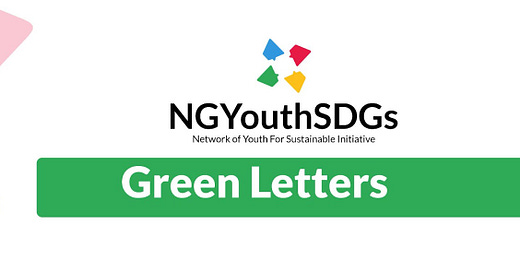



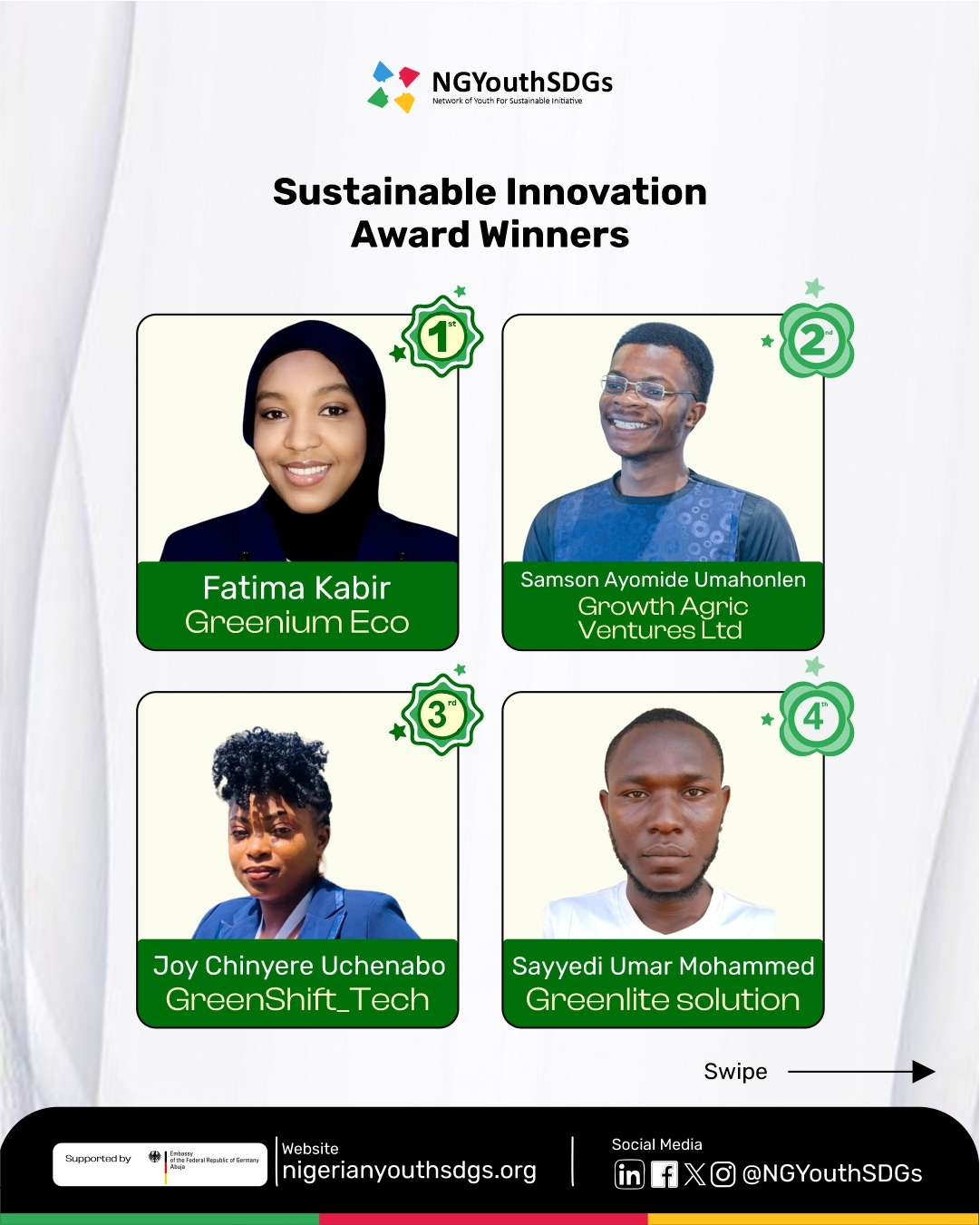
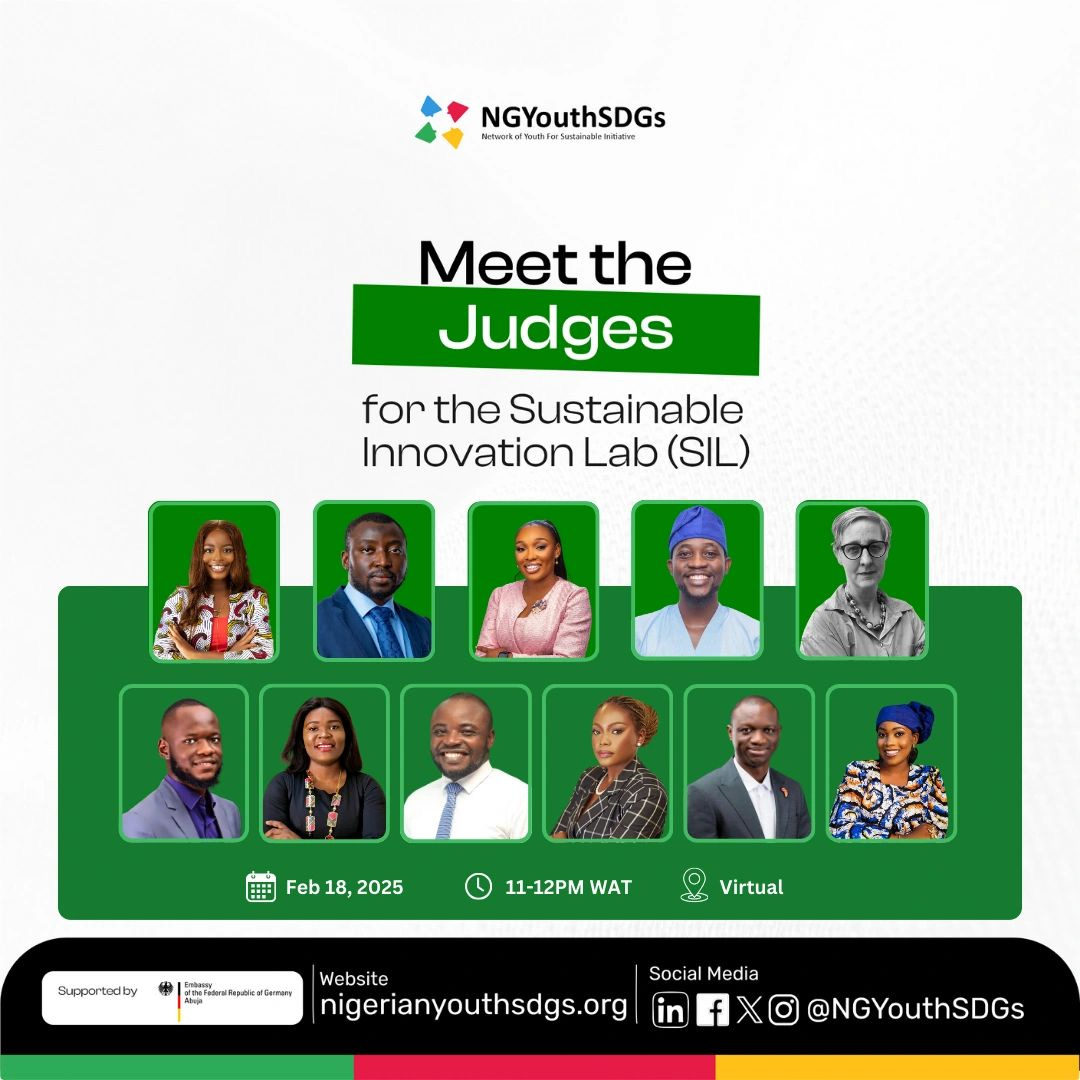
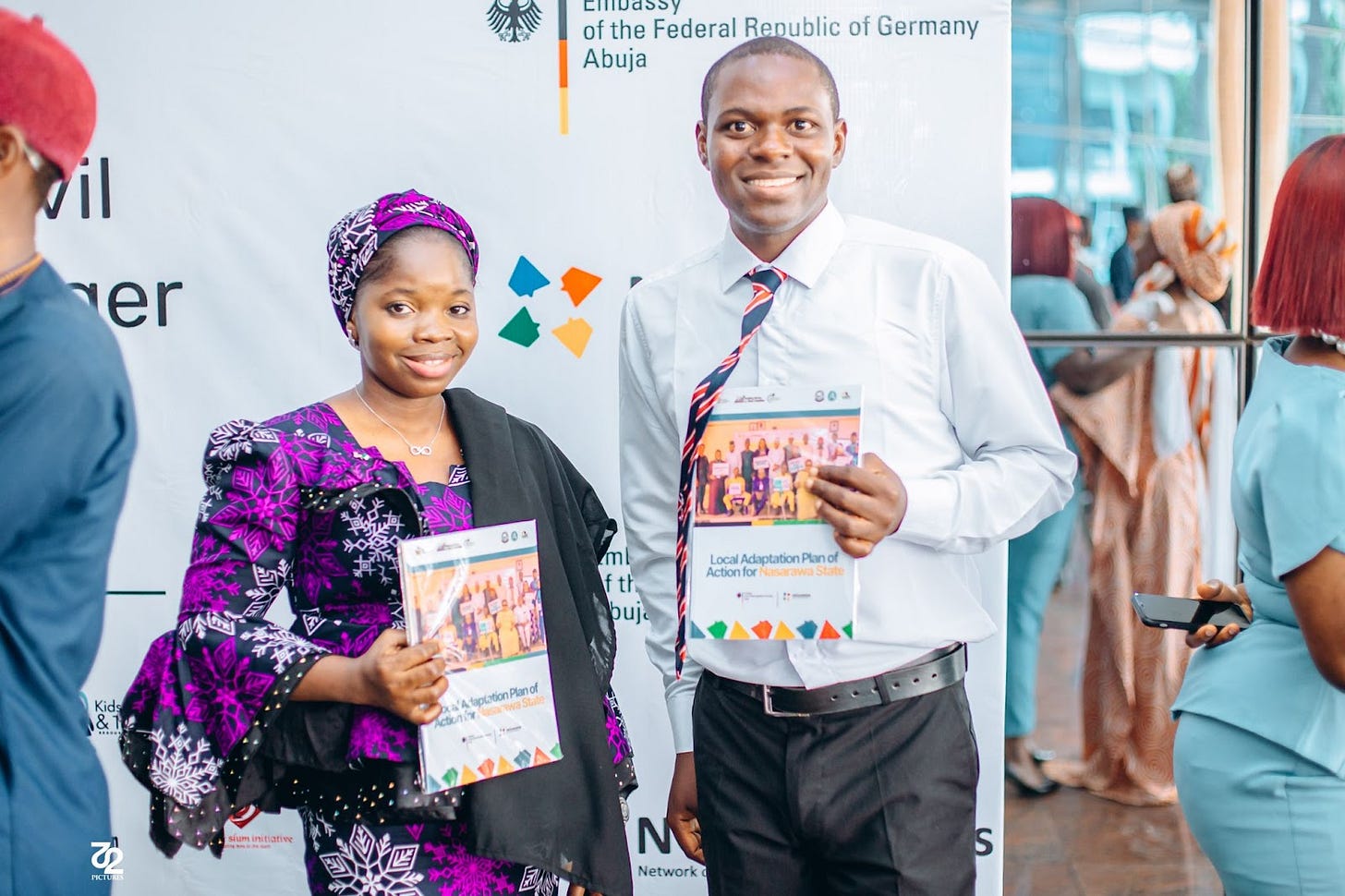

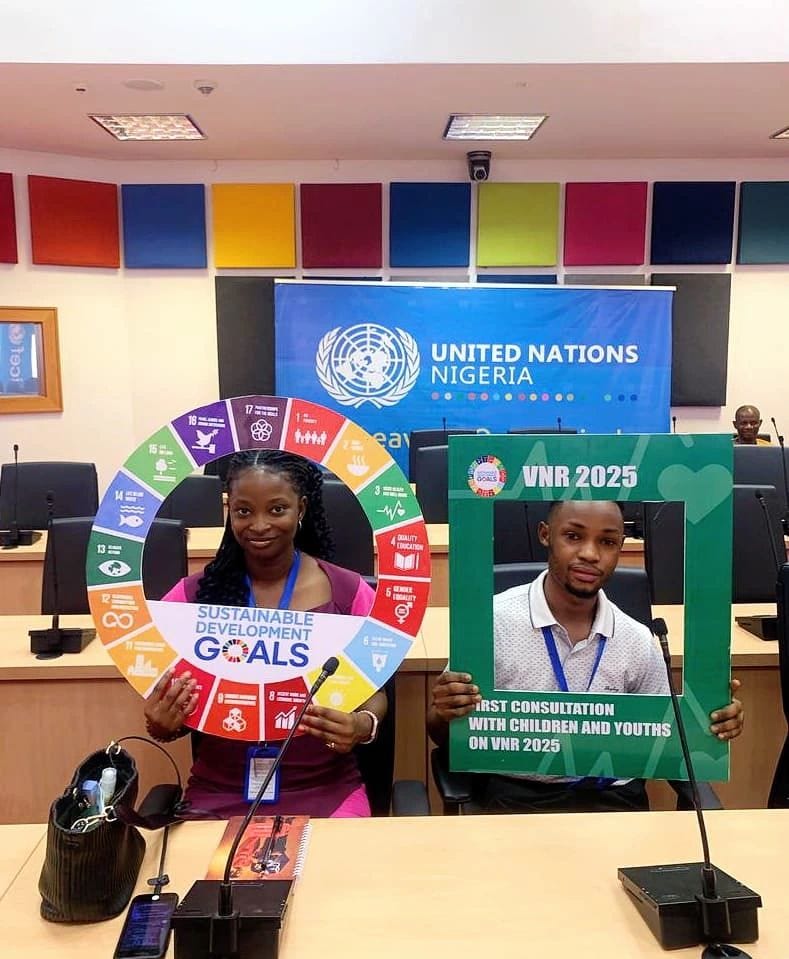
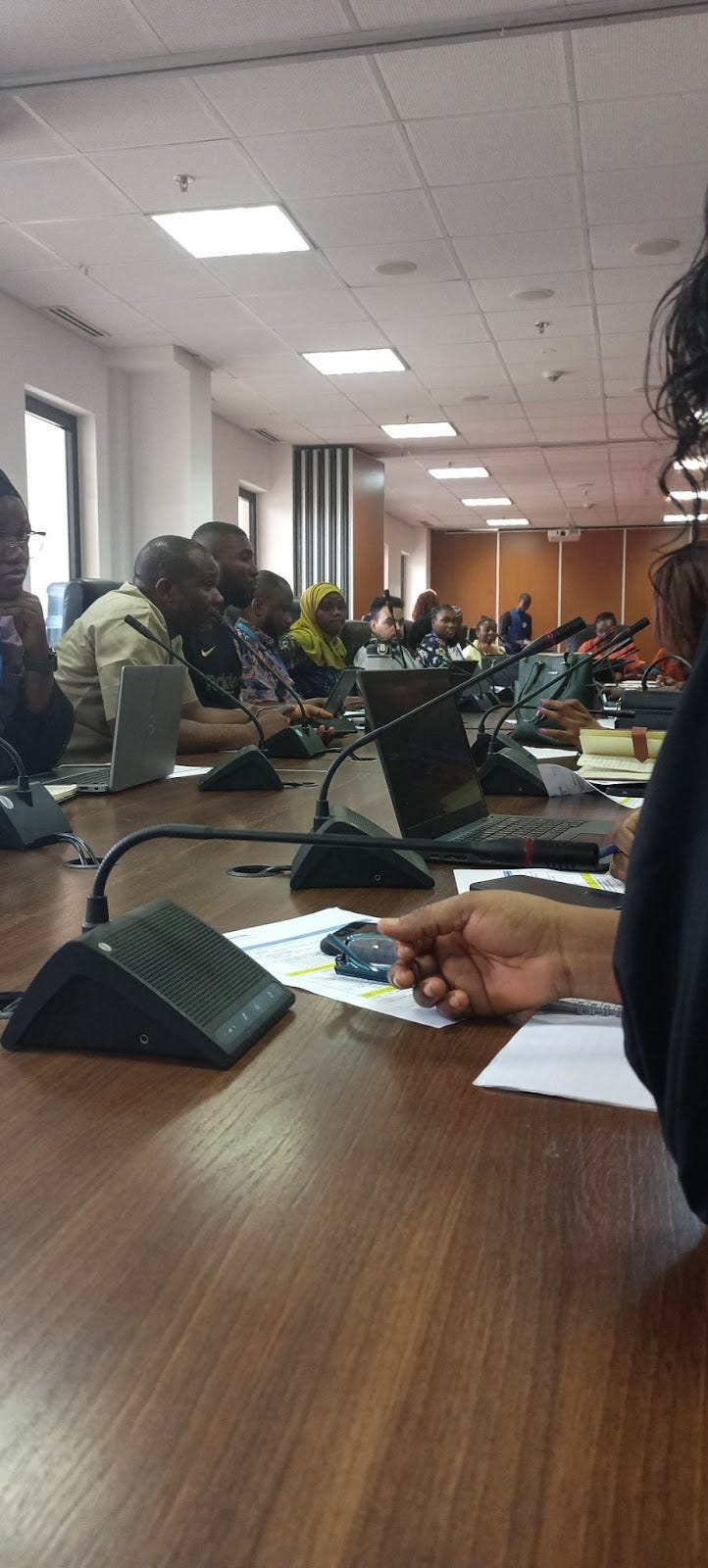
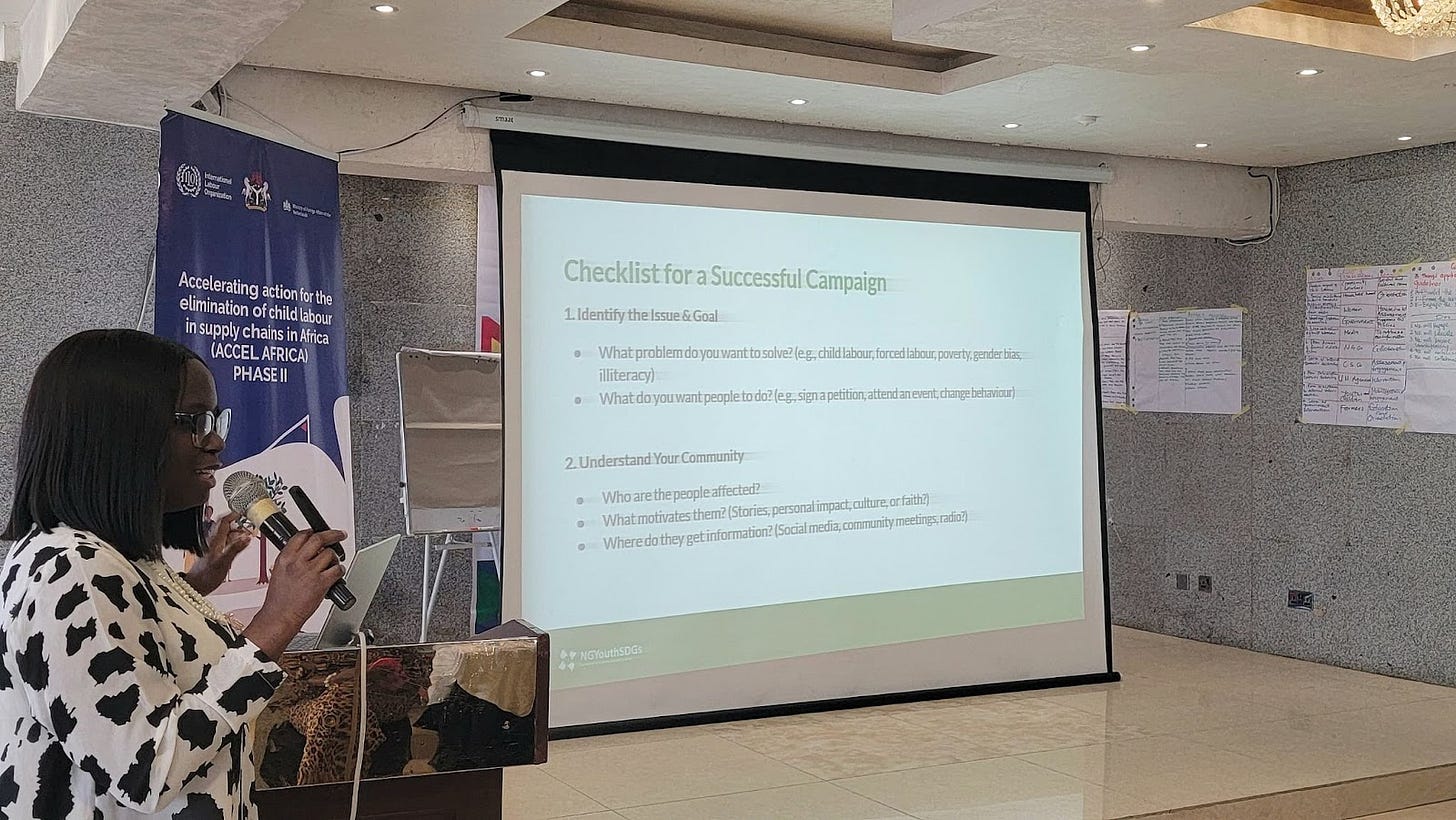

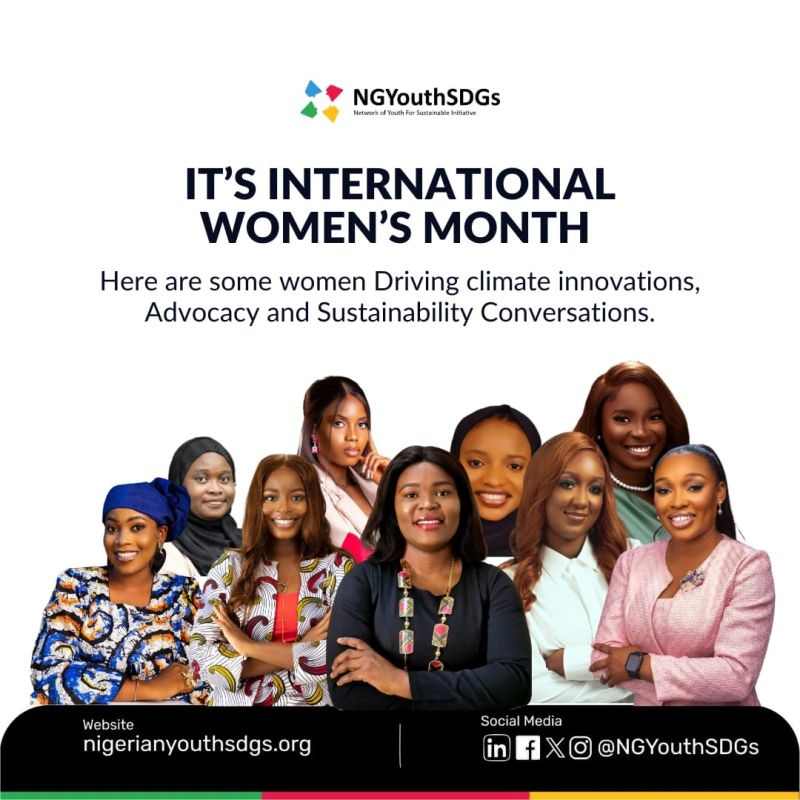
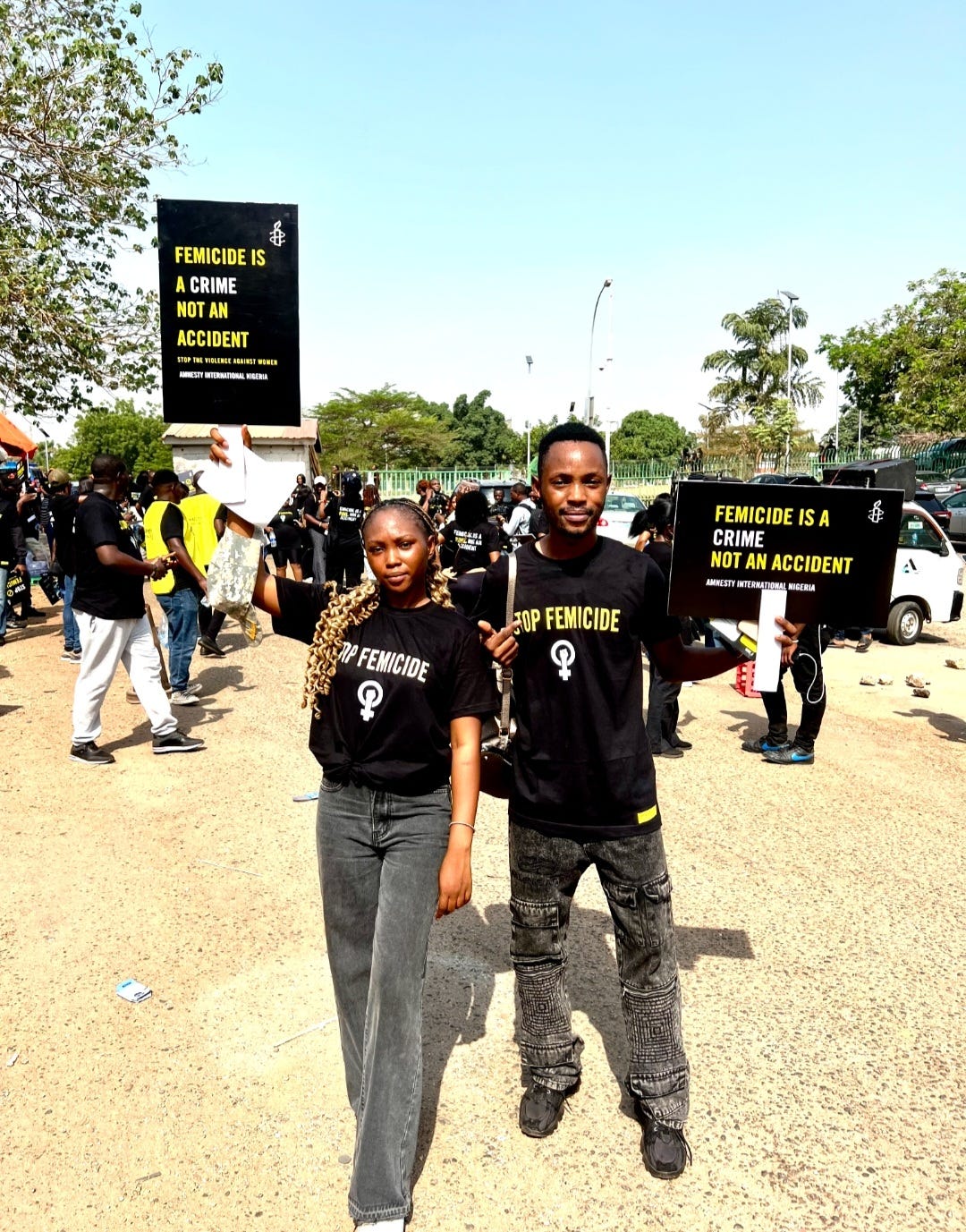
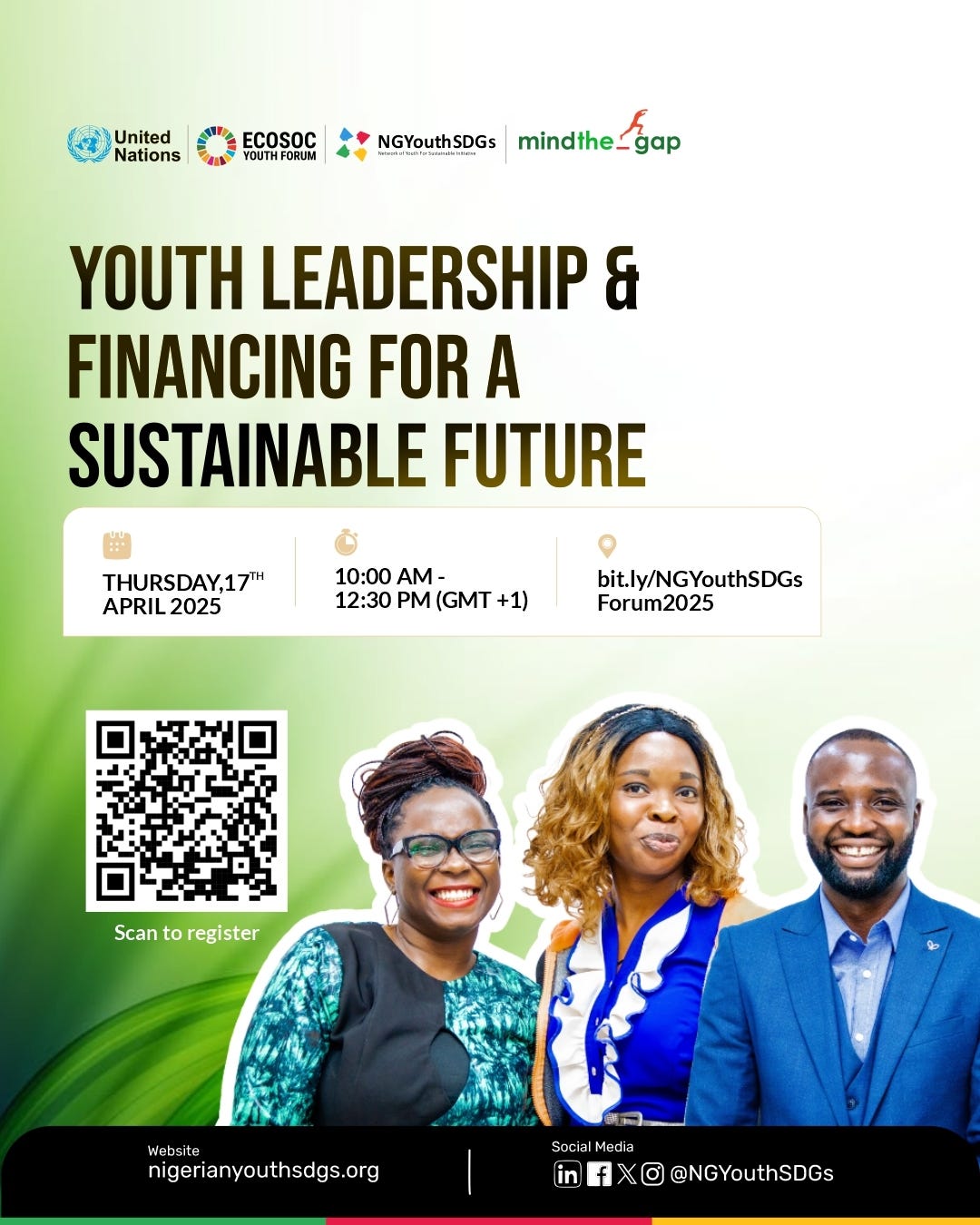
Great achievement